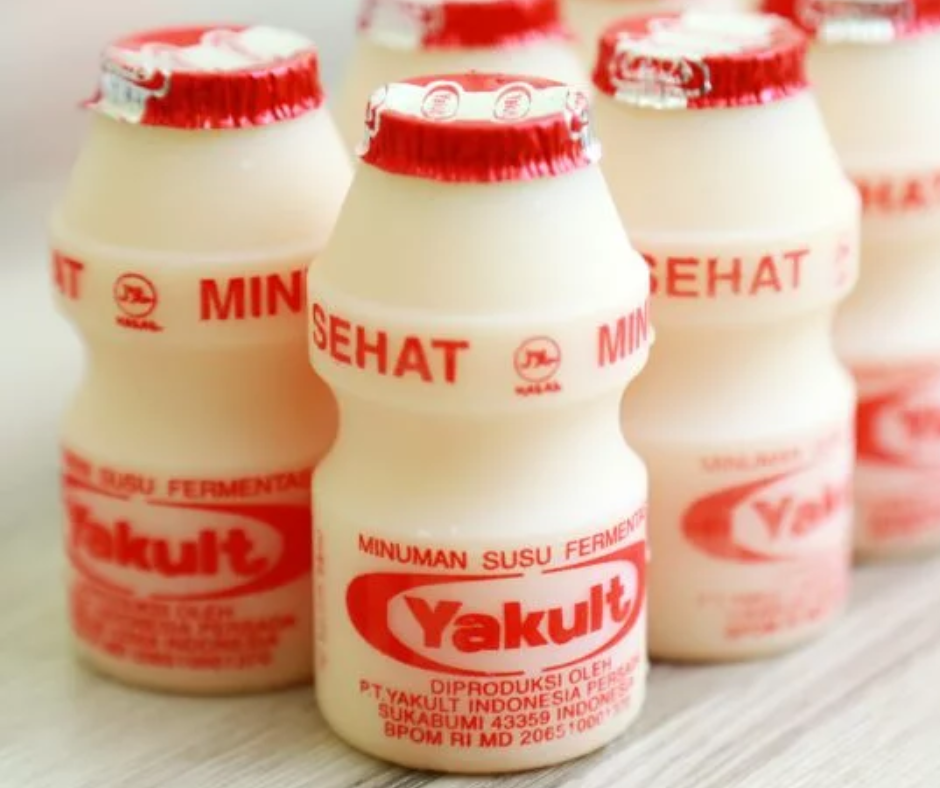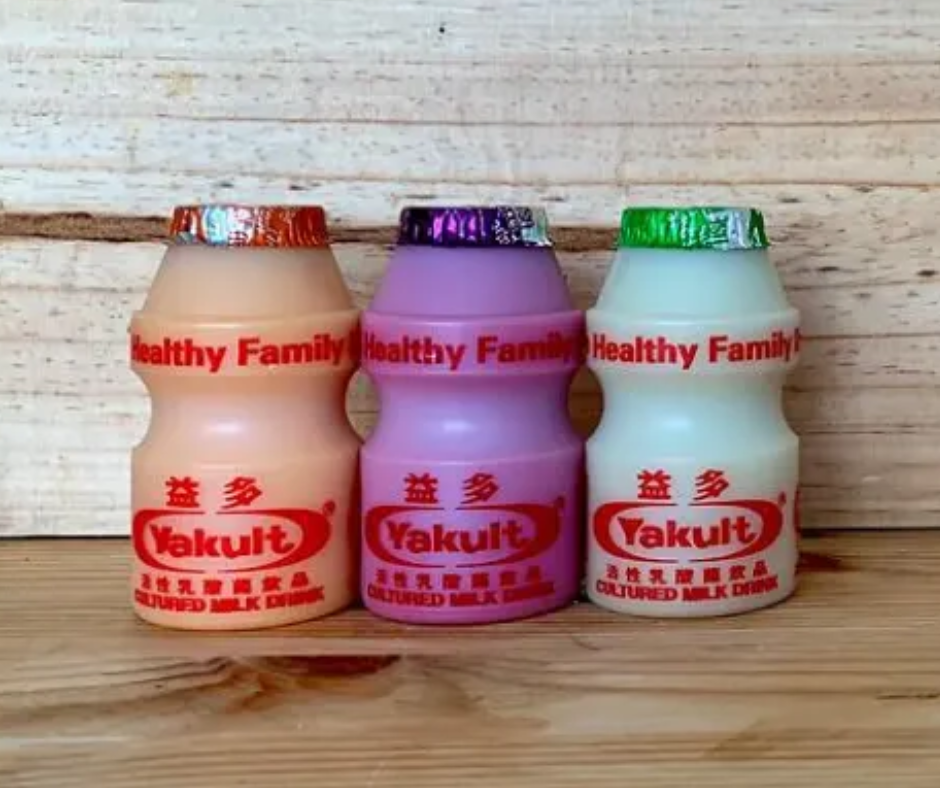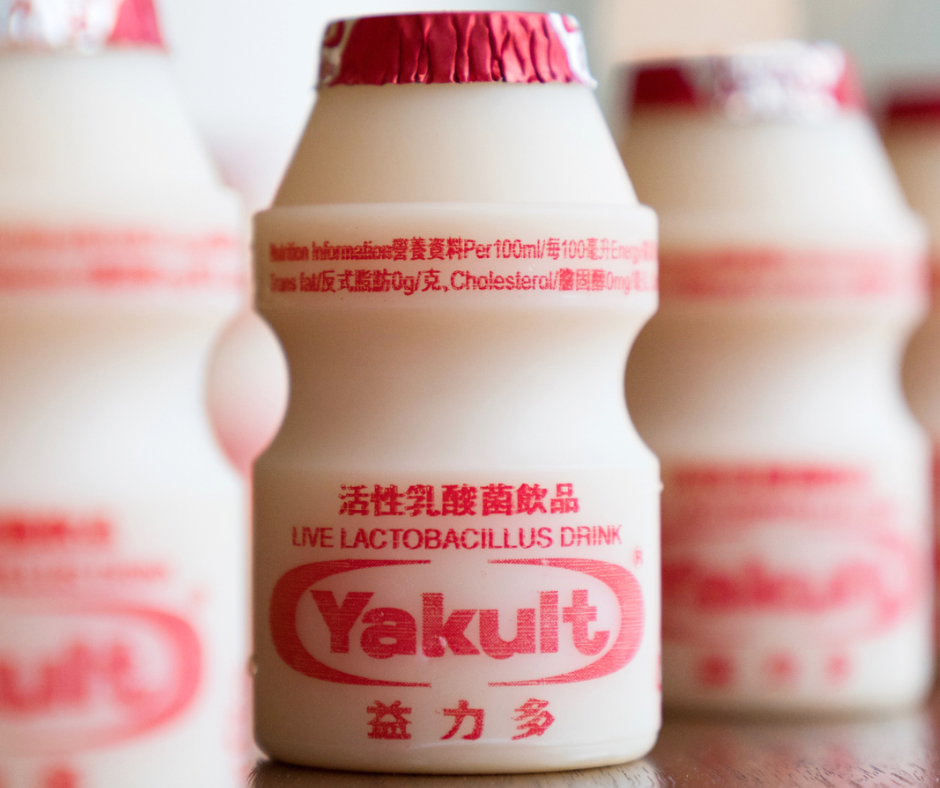Introduction
Are Yakults good for you? This is a question that many health-conscious consumers have been asking in recent years. If you are curious about the benefits of Yakult, a popular probiotic drink, read on to discover the probiotic secrets within those tiny bottles.
What Are Yakults?
Yakult is a well-known brand that produces a range of probiotic dairy beverages. The flagship product is Yakult Original, a fermented milk drink that contains billions of live Lactobacillus casei bacteria. These bacteria are known as probiotics and are believed to impact gut health positively.
The Popularity Of Yakult As A Probiotic Drink
Yakult has gained significant popularity, especially in Asian countries, due to its convenient packaging and reputation as a probiotic powerhouse. It is often found in small plastic bottles, each containing a precisely measured dose of probiotics. The sweet and tangy drink makes it enjoyable for children and adults.
Probiotics, such as those found in Yakult, are beneficial bacteria that can help maintain a healthy balance in the gut microbiome. Studies suggest that probiotics may support digestion, boost the immune system, and improve mental health.
While Yakult is not a cure-all solution, regular consumption of this probiotic drink may contribute to a healthy gut microbiota, which is crucial for overall well-being. However, it is important to note that individual results may vary, and Yakult should not be used as a substitute for medical advice or a balanced diet.
In recent years, the popularity of probiotics has soared, with many people seeking natural remedies for digestive issues and wanting to improve their overall health. Yakult’s easily accessible format and reputation as a probiotic leader have positioned it as a go-to choice for those looking to enhance their gut health.
When incorporating Yakult into your diet, following the suggested serving size and consuming it as part of a balanced diet is recommended. It is also advisable to consult with a healthcare professional, particularly if you have any underlying health conditions or are taking medication.
In summary, Yakults can be a nutritious addition to your diet, thanks to the billions of probiotics they contain. However, it is crucial to remember that they are not a magical cure-all and should be consumed in moderation as part of a healthy lifestyle. If you consider adding Yakults to your routine, discussing it with a healthcare professional is always wise. So go ahead and sip on Yakult’s probiotic secrets, but remember to prioritize overall wellness and listen to your body’s needs.
Are Yakults Good for You? – Benefits Of Yakults
Probiotic Content Of Yakults
A common question arises among consumers: Are Yakults Good for You? Yakult is a popular probiotic drink that has gained considerable attention for its potential health benefits. Each small bottle of Yakult contains billions of live “Lactobacillus casei Shirota” bacteria, a strain believed to promote good gut health and improve digestion. Probiotics are live microorganisms that provide health benefits to the host when consumed in adequate amounts. The presence of these beneficial bacteria in Yakult makes it an appealing choice for individuals looking to improve their overall well-being.
Health Benefits Of Consuming Probiotics
The consumption of probiotics, such as those found in Yakult, has been associated with several health benefits:
- Improved digestive health: The live bacteria in Yakult can help restore and maintain a healthy balance of gut bacteria, aiding digestion and preventing common digestive issues like bloating, gas, and constipation.
- Enhanced immune function: The gut plays a crucial role in the immune system, and a healthy gut microbiome can help strengthen immune function. Yakult stimulates the growth of beneficial bacteria in the intestines, which can support a robust immune response.
- Reduced risk of antibiotic-related side effects: Antibiotics can disrupt the natural balance of bacteria in the gut, leading to digestive issues. Consuming Yakult during and after a course of antibiotics may help restore the gut microbiota and reduce the risk of antibiotic-associated diarrhea.
- Potential weight management: Some studies suggest that certain probiotics, including those found in Yakult, may help manage weight. These probiotics may promote feelings of fullness and reduce calorie absorption, supporting a healthy weight.
- Mental well-being: Emerging research suggests a connection between the gut and the brain, often called the gut-brain axis. Probiotics, including those in Yakult, have been studied for their potential to improve mood and reduce symptoms of anxiety and depression.
It is important to note that the health benefits of Yakult are not guaranteed for everyone, and individual results may vary. Additionally, it is always recommended to consult with a healthcare professional before making any significant changes to your diet or incorporating new products.
In conclusion, Yakults are a popular choice for those seeking the potential health benefits of probiotics. Including live bacteria in Yakult promotes good gut health and can support digestion, immune function, weight management, and mental well-being. However, it is important to approach probiotics as part of a balanced and healthy lifestyle, complemented by a varied diet and regular exercise, for optimal health outcomes.
Drawbacks Of Yakults
High Sugar Content In Yakults
It is also important to understand the drawbacks of Yakults to answer ‘Are Yakults Good for You?’. While Yakults are marketed as a healthy probiotic drink, it is important to consider their sugar content. One of the main drawbacks of Yakults is that they contain a significant amount of sugar. A typical 65ml bottle of Yakult contains about 11 grams of sugar, equivalent to almost three teaspoons. Consuming too much-added sugar regularly can negatively affect overall health, including an increased risk of obesity, type 2 diabetes, and dental issues. Therefore, it is crucial to be mindful of the sugar content in Yakults and consume them in moderation.
Ultra-processed Nature Of Yakults
Another drawback of Yakults is their ultra-processed nature. Yakults are produced through a highly industrialized process that uses several artificial ingredients and additives. These include stabilizers, emulsifiers, and artificial flavors. While these additives may help enhance the taste and prolong the shelf life of Yakults, they can also potentially negatively impact health. Some studies suggest that consuming too many ultra-processed foods and beverages may increase the risk of various health problems, such as obesity, heart disease, and certain types of cancer. Therefore, it is important to be cautious when consuming Yakults and consider opting for more natural and less processed alternatives if possible.
In conclusion, while Yakults offers the potential benefits of probiotics for gut health, it is important to be aware of their drawbacks. These include the high sugar content and ultra-processed nature of Yakults. To minimize the negative effects, consuming Yakults in moderation is recommended, and considering exploring other probiotic-rich options that are lower in sugar and less processed. Additionally, it is always a good idea to consult with a healthcare professional or registered dietitian to determine the best approach to incorporating probiotics into your diet for optimal health.
Alternatives To Yakults
For those seeking a probiotic boost, many alternatives to Yakults can provide similar benefits. Here are a few options to consider:
Naturally Fermented Foods As A Better Alternative
If you prefer a more natural approach, incorporating foods that undergo natural fermentation into your diet can be an excellent alternative to Yakults. These foods are rich in live active cultures and can provide a wider variety of beneficial bacteria.
- Yogurt: A classic probiotic-rich food, yogurt contains different strains of beneficial bacteria that can support a healthy gut. Opt for plain yogurts without added sugars or artificial flavors for maximum health benefits.
- Kefir: Another fermented dairy product, kefir, is similar to a drinkable yogurt. It contains a variety of live active cultures and can be a tasty and refreshing way to promote gut health.
- Sauerkraut: Made from fermented cabbage, sauerkraut is packed with beneficial bacteria and provides a tangy and crunchy addition to meals. Look for refrigerated sauerkraut to ensure it contains live cultures.
- Kimchi: A staple in Korean cuisine, kimchi is a spicy and flavorful fermented vegetable dish. It often includes cabbage, radishes, and other vegetables, providing various probiotics.
Consideration Of Probiotic Supplements
If incorporating fermented foods into your diet is not feasible or you prefer a more concentrated probiotic source, probiotic supplements are an alternative to consider. These supplements contain specific strains of beneficial bacteria and are available in various forms, such as capsules, tablets, or powders.
When choosing a probiotic supplement, look for the following key factors:
- Strain diversity: Opt for a supplement containing various strains to ensure you’re getting a broad spectrum of probiotic benefits.
- High potency: Check the supplement’s potency, typically measured in colony-forming units (CFUs). Higher CFU counts may be more beneficial, especially for those with specific gut health concerns.
- Reputable brand: Choose a supplement from a trusted and reputable brand that follows good manufacturing practices and provides clear information about the strains and potency.
It’s essential to consult with a healthcare professional before starting any new supplement regimen, especially if you have underlying health conditions or are taking medications.
In conclusion, while Yakults can be a convenient way to consume probiotics, several alternatives are available. Incorporating naturally fermented foods into your diet or considering probiotic supplements can offer similar benefits and provide a wide range of beneficial bacteria. As always, listening to your body and making choices that align with your specific health needs and preferences is important.
FAQ: Are Yakults Good for You? Sipping on the Probiotic Secrets
Q: What is Yakult?
A: Yakult is a probiotic drink that contains a unique strain of beneficial bacteria called Lactobacillus casei Shirota. It is known for its rich history, quality ingredients, and proven health benefits.
Q: How does Yakult support digestive well-being?
A: Yakult provides your gut with beneficial bacteria, which can improve digestion and support overall digestive health. Its probiotic secrets lie in the power of good bacteria to enhance the balance of your gut microbiota.
Q: Is Yakult suitable for beginners in probiotics?
A: Absolutely! Whether you’re new to probiotics or a long-time fan, Yakult is a standout choice. Its history, quality ingredients, and proven health benefits make it suitable for anyone interested in supporting their digestive well-being.
Q: Can Yakult be incorporated into meals and snacks?
A: Yes, definitely! Yakult is a delightful and nutritious way to infuse your meals and snacks with a touch of goodness. You can enjoy Yakult alongside your favorite foods to support a healthier lifestyle.
Q: What does the future hold for Yakult and probiotics?
A: The future of probiotics looks promising, and Yakult is expected to play a significant role in shaping it. As scientific research continues to highlight the importance of gut health, Yakult’s commitment to quality and its unique Lactobacillus casei Shirota strain position it as a leader in the industry.
Q: Can Yakult cater to evolving consumer preferences?
A: Absolutely! Yakult’s company is likely to explore innovative formulations and expand its product range to meet the evolving preferences of consumers. With an increasing focus on holistic health and preventive measures, Yakult’s legacy of promoting digestive health is expected to remain strong.
Q: Is Yakult more than just a probiotic drink?
A: Yes, indeed! Yakult is not just a probiotic drink; it is a symbol of dedication to better health through the power of good bacteria. Its rich history, quality ingredients, and proven health benefits make Yakult a true companion on your journey to a healthier tomorrow.
Q: Should I give Yakult a try?
A: We encourage you to give Yakult a try and take a step towards a healthier tomorrow. Cheers to Yakult and a happier, healthier you!
Conclusion
Now you know the answer to ‘Are Yakults Good for You?’. Yakult is a popular probiotic drink with several potential health benefits. It contains Lactobacillus casei Shirota, a strain of beneficial bacteria that may support digestion and boost the immune system. However, it is important to note that the scientific evidence supporting the specific health claims of Yakult is still limited, and further research is needed.
While Yakult can be a convenient way to incorporate probiotics into your diet, it should not be relied upon as a sole source of beneficial bacteria. Consuming a variety of probiotic-rich foods and drinks is always recommended to ensure a diverse range of beneficial microorganisms in your gut.
Overall Assessment Of Yakults As A Probiotic Drink
Yakult can be a beneficial addition to a balanced diet and healthy lifestyle. Its probiotic content may provide digestive support and enhance the immune system. However, it is important to consider Yakult as part of a broader approach to overall gut health, including a diet rich in fiber, fruits, vegetables, and other fermented foods.
Recommendations For Healthier Probiotic Options
If you’re looking for alternative probiotic options, several other foods and drinks provide a wide range of beneficial bacteria. Some of these options include:
- Yogurt: Plain, unsweetened yogurt without added sugars or artificial flavors is an excellent source of probiotics. Look for brands that contain live and active cultures.
- Kefir: Similar to yogurt, kefir is a fermented milk drink containing various probiotic strains. It can be enjoyed independently or used in smoothies and other recipes.
- Sauerkraut: Made from fermented cabbage, sauerkraut is a tangy, flavorful, probiotic-rich food. Look for unpasteurized versions to ensure the beneficial bacteria are still alive.
- Kimchi: A staple in Korean cuisine, kimchi is a spicy fermented cabbage dish packed with probiotics. It can be enjoyed as a side dish or used in stir-fries, soups, and other recipes.
- Tempeh: Made from fermented soybeans, tempeh is a versatile and protein-rich food that provides probiotics. It can be used as a meat substitute in a variety of dishes.
Remember, it’s always a good idea to consult with a healthcare professional or registered dietitian before significantly changing your diet or incorporating new supplements or probiotics into your routine.
Incorporating probiotics into your diet can have potential health benefits, but it’s important to choose a variety of sources and maintain a balanced lifestyle overall. Whether you choose Yakult or other probiotic-rich options, remember to listen to your body and make choices that support your unique health and well-being.

Deb Carlson at Crosslake Coffee: Join Deb at Crosslake Coffee for a delightful blend of community, caffeine, and creativity. Discover the cozy ambiance and warm hospitality that make this local coffee shop a beloved gathering spot. From expertly crafted espresso drinks to mouthwatering pastries, Deb invites you to savor every sip and bite. Stay connected with the latest updates on specials, events, and live music performances by following Deb Carlson at Crosslake Coffee on social media. Embrace the vibrant online community and share your love for great coffee and good company with fellow enthusiasts. Don’t miss out on a moment of the Crosslake Coffee experience – connect with Deb on social media today.



